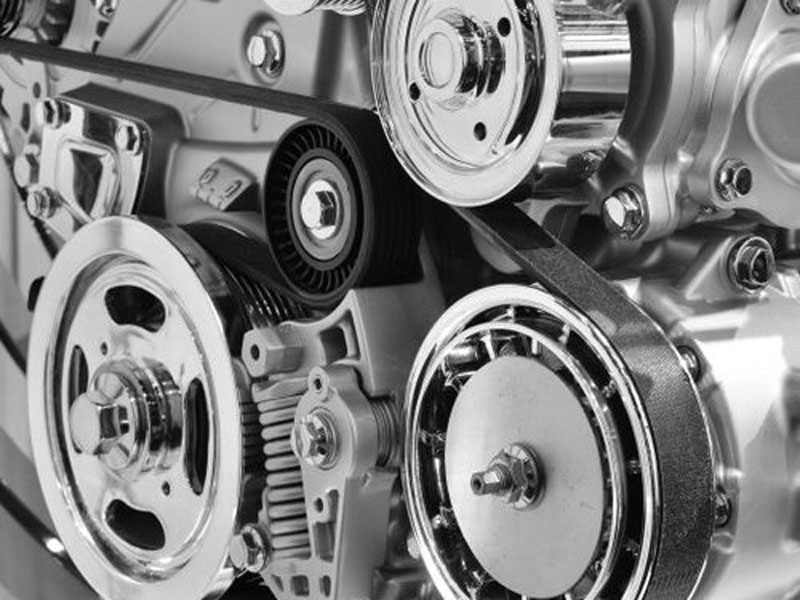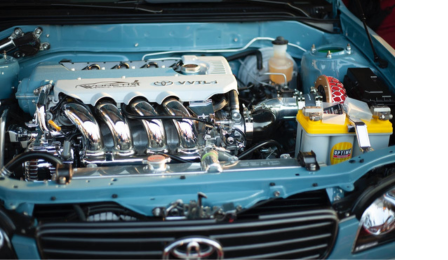Used Engines for Sale: What You Need to Know Before Buying One
Used Engines for Sale: What You Need to Know Before Buying One
Blog Article
Crucial Considerations for Ensuring Top Quality and Long Life in operation Engines
When considering the acquisition of a used engine, guaranteeing its high quality and longevity needs a complex strategy. Upkeep history is a critical aspect, as it gives insight into the engine's previous treatment and prospective future integrity. Efficiency screening is also crucial, supplying a photo of the engine's operational performance.
Engine History Analysis
In the world of used engines, a detailed engine history assessment is vital to guaranteeing top quality and integrity. Understanding an engine's past can supply vital insights right into its efficiency capacities and possible future long life. A thorough background review includes several crucial aspects that play a substantial duty in examining an engine's condition. Upkeep documents are indispensable. Normal maintenance, consisting of oil adjustments, filter substitutes, and scheduled tune-ups, show that the engine has actually been well-cared-for, decreasing the probability of unpredicted failures.
In addition, evaluating any kind of history of repair services or substitutes is crucial. Engines that have actually undertaken substantial repairs may have underlying problems that might resurface. Understanding the context of such repair services, whether as a result of making problems or proprietor oversight, is important in creating an extensive analysis. Furthermore, taking a look at the engine's gas mileage can function as a sign of damage. Lower mileage engines are usually much more desirable, yet it is also important to consider how those miles were accumulated. An engine used primarily for long-distance highway driving might remain in better condition than one subjected to constant stop-and-go city website traffic.
Essentially, an exhaustive examination right into an engine's history is important for making enlightened getting decisions. used engines for sale.
Comprehensive Examination Guide
While recognizing an engine's history provides beneficial context, a detailed inspection is the following step to guarantee its present problem aligns with historic data. The examination should begin with a visual evaluation, looking for signs of leakages, deterioration, and unusual wear. Examine the outside for oil discolorations or coolant marks, which may suggest underlying concerns.
Following, evaluate the engine's installing system for any kind of loosened bolts or abnormalities that might influence efficiency. Pay close attention to the condition of belts and pipes, as these parts are crucial for ideal engine capability. Examine for fractures, fraying, or any kind of signs of degeneration.

Identifying Use and Tear
Recognizing indicators of wear and tear is crucial for evaluating a used engine's long life and integrity. It entails a thorough evaluation of numerous engine components to identify their present state and possible future efficiency. Common indications consist of noticeable deterioration, which can impact steel components and endanger architectural honesty. Corrosion on or around the engine block, cylinder heads, and exhaust manifolds is specifically worrying.
An additional crucial facet is examining the engine's seals and gaskets. These parts are important for preserving appropriate pressure and protecting against fluid leakages. Evidence of oil leakages or worn gaskets usually suggests wear and tear, possibly causing a lot more extreme issues if not resolved promptly. Furthermore, uncommon sounds throughout engine operation, such as knocking or ticking sounds, might indicate inner damage or too much endure moving components like pistons or bearings.
The problem of belts and hoses is similarly vital, as they play a vital duty in recommended you read the engine's total function. Cracked or torn belts and fragile hose pipes are indications old that can result in engine failing if neglected. Last but not least, examining the oil condition and filter can offer insights right into previous maintenance practices, as filthy oil or clogged up filters recommend overlook and accelerated wear.
Efficiency Testing Essentials
Evaluating the damage of engine parts establishes the phase for a detailed analysis via performance screening. Efficiency testing acts as a crucial procedure in identifying the operational stability of a made use of engine. By imitating real-world conditions, it examines the engine's capacity to supply power successfully and accurately. Key metrics include horse power, torque, gas effectiveness, and discharges degrees. This information provides important understandings into the engine's current performance and helps determine possible concerns that may not be promptly noticeable.
Utilizing dynamometers is a common method in performance screening. These tools gauge the engine's output throughout numerous problems, offering a thorough profile of its capability. In addition, on-road testing enhances dynamometer evaluations by observing engine behavior under typical driving scenarios, ensuring it fulfills the needed criteria for both safety and security and performance.
Advanced analysis devices further enhance the capability to identify underlying issues. These tools examine engine administration systems, identifying mistakes in digital parts that might affect performance. Comprehensive testing not just verifies the engine's operational standing yet likewise help in projecting future upkeep needs. This makes certain the made use of engine can provide reliable efficiency over an extensive duration, therefore maximizing its value i was reading this and service life.
Maintenance and Care Tips
Proper maintenance and care are crucial to prolonging the lifespan of a made use of engine and guaranteeing its regular efficiency. Routine oil changes are paramount; using the manufacturer's advised oil kind and quality can stop excessive wear and tear. Additionally, oil filters need to be changed concurrently to maintain optimum lubrication and tidiness within the engine.
Checking fluid levels, consisting of coolant, transmission fluid, and brake fluid, is essential. Ensuring these liquids are at appropriate degrees assists prevent getting too hot and various other mechanical issues. Inspecting belts and tubes for indications of wear, such as cracks or fraying, can avoid prospective failures that might result in costly repair services.
Routine inspection of the air filter is additionally needed, as a clean filter makes sure efficient air flow and burning, consequently enhancing engine performance. Spark plugs need to be examined and changed when needed to preserve efficient gas combustion and avoid engine misfires.
Finally, normal diagnostic checks using specialist devices can identify prospective concerns prior to they become considerable issues. By sticking to these maintenance and care pointers, visit this site used engine owners can guarantee their engines remain dependable, reliable, and capable of doing more than an extended period.
Conclusion

Report this page